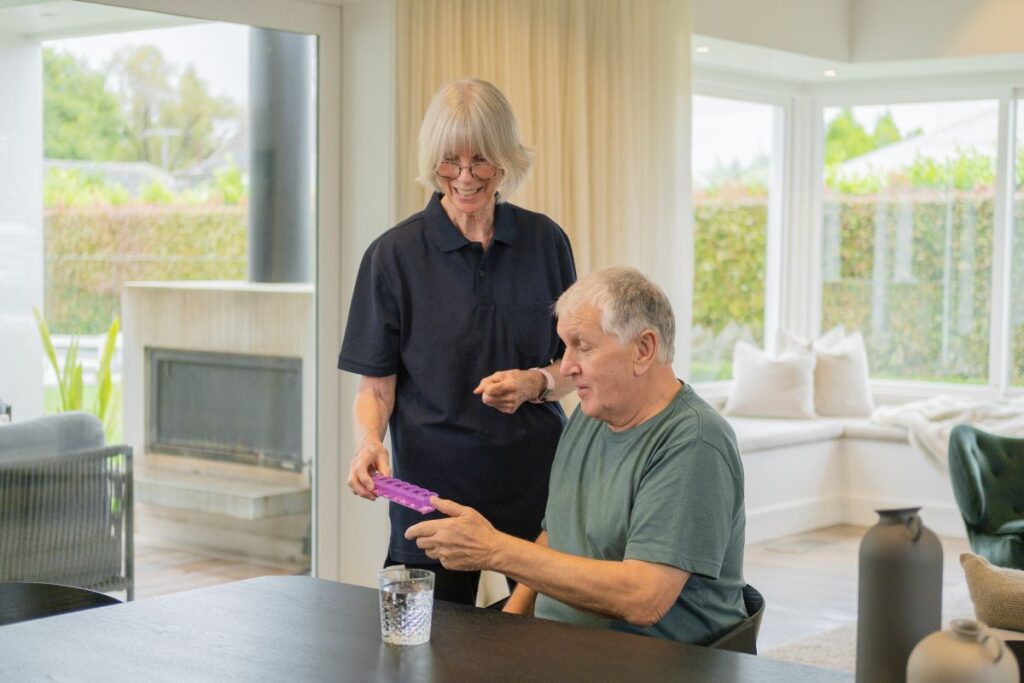Everyone needs a break every once in a while. Respite care gives primary caregivers – people who usually have the responsibility of caring for someone themselves – the chance to do just that, while knowing that the person they care for is receiving high quality support that meets their particular needs. This kind of break from regular caregiving can be invaluable for the mental health and wellbeing of primary caregivers, allowing them to avoid burnout and focus on their own needs. Whether someone needs regular support due to illness, disability, age, or other conditions, respite care such as that provided by Private Care NZ works to uphold both their wellbeing and quality of life, as well as the wellbeing of the caregiver.
Respite care can be provided in a variety of settings, including the home of the person receiving care, specialised respite care centres, and residential care facilities. The duration of respite care varies according to the needs of the caregiver and care recipient, ranging from just a few hours to several days. In every case, the main goal of respite care is to ensure that the person receiving care continues to get the support and attention they require, while allowing caregivers the space to rest and recharge. This plays a vital role in allowing primary caregivers to maintain both their own quality of life and the standard of care for those they’re supporting.

Discover the Different Types of Respite Care
There are several different varieties of respite care, to allow for the differing circumstances and needs of primary caregivers and those they regularly support. You can let us know which kind of respite care might suit you best, or consult with our team to learn more about how the various forms of respite might apply to your own circumstances.
In-home respite care
One of the most popular options available to primary caregivers with Private Care NZ is in-home respite care. This enables the person receiving care to continue with their usual routines and habits in their own familiar home setting. Our professional respite caregivers are comfortable working in a home environment, sensitively providing the people we support with the care they need to live life their way, with dignity and comfort. This style of respite care is often the easiest option for both primary caregivers and those they support.
Out-of-home respite care
For some primary caregivers, including carers who live at the same residence as those they support, out-of-home respite care options might be a better fit. Instead of taking place in the home, this kind of respite care can be based in residential facilities, adult day centres, or even dedicated respite care facilities.
Emergency respite care
Sometimes there’s no chance to plan ahead for respite care. Unexpected illness, family emergencies, and other last minute disruptions can make it impossible to book in respite care ahead of time, which is where emergency respite care comes in. This type of care can be arranged quickly to make sure that the person receiving support continues to have their needs met, even when their primary caregiver is unavailable.

Key Benefits of Respite Care
Respite care has all kinds of positive impacts for both primary caregivers and those they are caring for. When a break is needed, this crucial form of support can make all the difference.
Benefits for caregivers
- Helps prevent burnout
- Can improve mental health
- A crucial fallback in emergencies
- A chance to focus on personal health and wellbeing
Benefits for care recipients
- Meeting new people
- With residential respite, a chance to broaden social circle
- A welcome change of pace/routine

Finding the Respite Care Services You Need
There are few different places you can go when you’re looking to find respite care. Below you can find a handful of helpful sources to get you started.
- Needs Assessment and Service Coordination Association (NASCA) is a not-for-profit driven by a vision to enable people to lead a good life. If you’re not sure where to start, they can help you discover the kind of services you need most. NASCA is created to serve our disabled community, people with mental health issues, and older people who need age-related support. (Publicly funded options)
- To find more specific information for those supporting disabled individuals, consider checking this Whaikaha Ministry of Disabled People page. It briefly touches on funding options and has a few other helpful links. (Publicly funded options)
- If you’re ready to take the next step and book respite care for you and your loved one, reaching out to a respite care provider like Private Care NZ is a quick way to secure the support you need. You can also reach out the team with any questions you have and they’ll be happy to help you find what you need. (Privately funded options)


